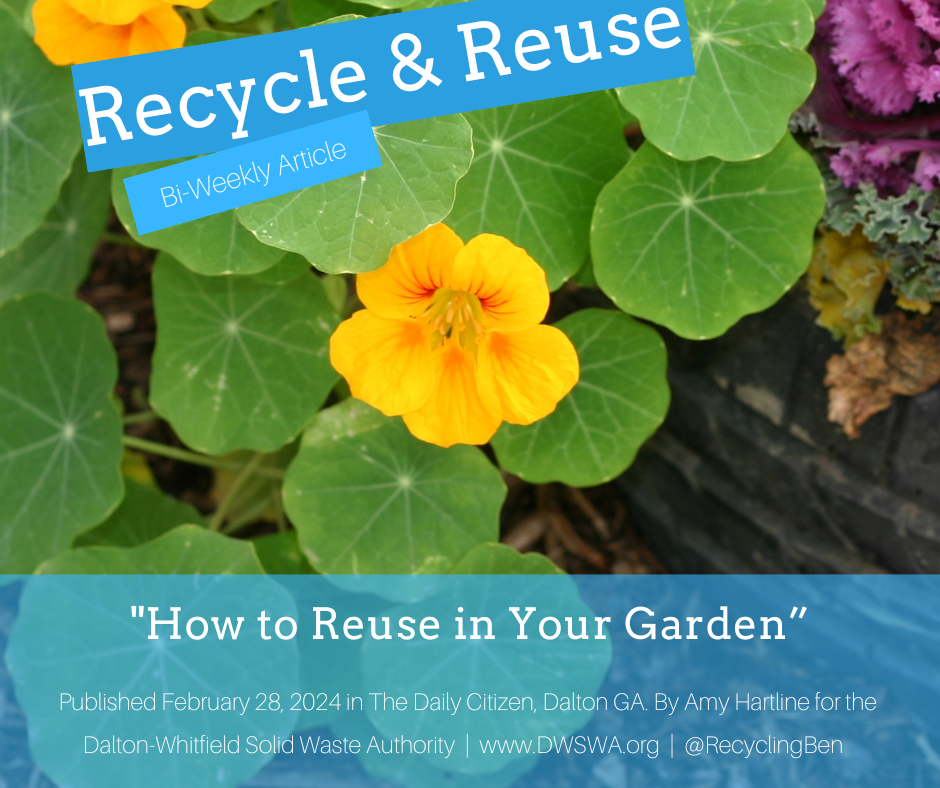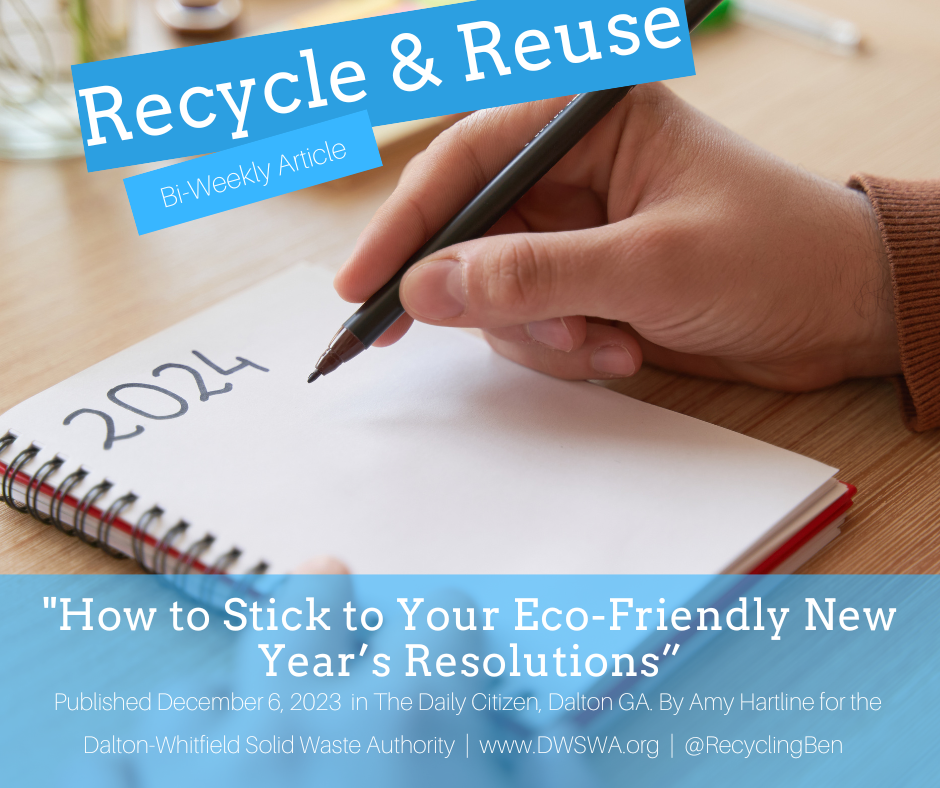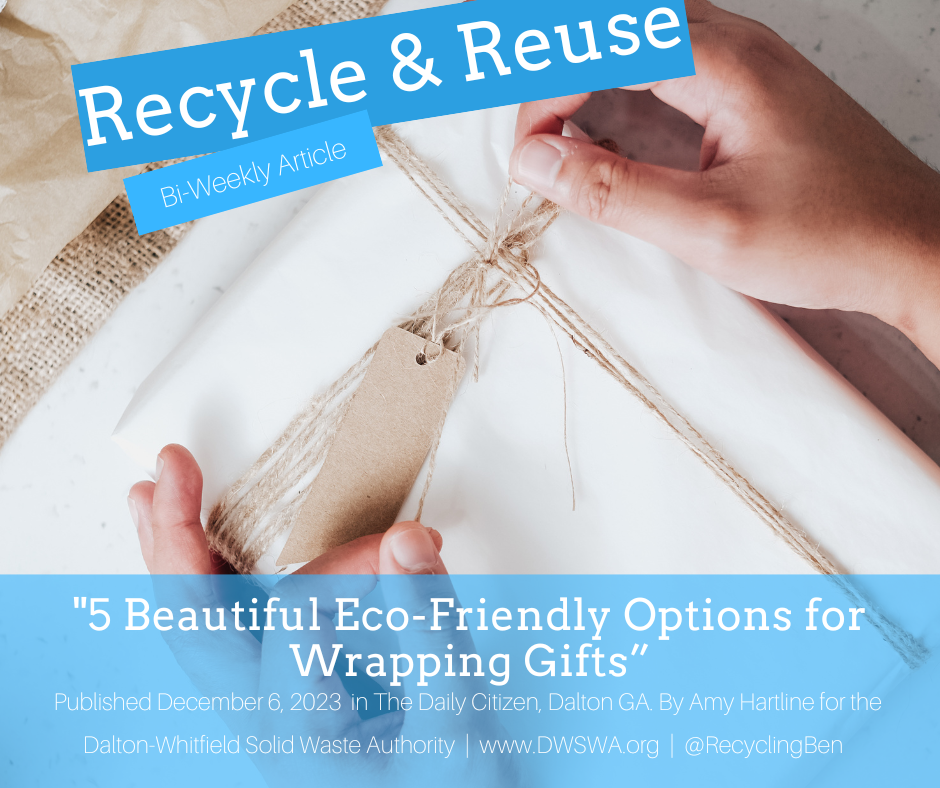The secret language of recycling
/This week I’m gearing up for the Whitfield Education Foundation celebrity spelling bee, and as I prepare, I keep thinking about how words matter —especially when it comes to recycling. Just like spelling, recycling has its own language that can help us understand why and how to recycle.
In spelling bees every single letter counts. Miss one letter and the word is wrong. In recycling, every single item we toss in the bin counts, too. Every item you put into your recycling bin gets to be remade into something new, saving us resources like trees, water and oil. However, when you miss throwing something in the recycling bin and put it in the trash instead that item will end up in the landfill forever and you won’t get a second chance to do the right thing.
Another time where every single item matters is when we deal with contamination. Contamination here isn’t about germs, it means putting the wrong thing in the recycling bin. Unfortunately, too much contamination or the wrong type can spoil a whole load of recyclables, sending everything to the landfill instead. For example, a greasy pizza box or an open soda bottle can ruin a batch of clean recyclables, so make sure you remember the recycling rules and keep food waste and liquid out of your bins.
An easy to spell word that makes a big difference in how well you recycle is sorting. Sorting is exactly what it sounds like, making sure each item goes in the right place. This is a little like organizing a spelling list into different origins of language so you can study them better. Recycling centers have machines and people that help sort the items that come in, but the better we do with sorting at home, the easier it is for recycling centers to do their job, and the easier it is to recycle once you get to the convenience center. Sorting correctly at home makes recycling centers work faster and more efficiently, which helps keep our recycling system strong.
One of the recycling terms that is popular in the industry is “closed loop.” In recycling, a closed loop is a cycle that keeps materials going around and around instead of letting them go to waste. Imagine recycling an old book that gets turned into a cereal box, and then that cereal box gets recycled and turned into a paper towel core. This “loop” keeps resources in use and stops them from piling up in a landfill. Just how we use the same letters over and over, we can use the same recycling over and over.
My last term for you is one that you’ll see at the store and not at your bin. When you see an item labeled as having “post-consumer recycled content,” this is a fancy term for saying that it is made from recycled materials. Like how practicing spelling words strengthens your memory, purchasing items that are made from recycled materials helps drive demand for recycled materials and strengthens our local and national recycling efforts.
As I head to the spelling bee, I’m not only practicing words but also thinking about how to bring these recycling terms into focus. Just as I hope to spell each word correctly, I want to share how understanding these recycling words helps us all do our part. With every new word I learn, I’m reminded of how a little knowledge can make a big difference.
At the spelling bee, I’ll be spelling words for fun, but the words that we all learn in recycling are serious. The more we know, the better we recycle, and the more we can protect the environment for future generations.
Amy Hartline is the recycling and education program coordinator for the Dalton-Whitfield Solid Waste Authority. Have a recycling question? Contact her at (706) 278-5001 or ahartline@dwswa.org.































